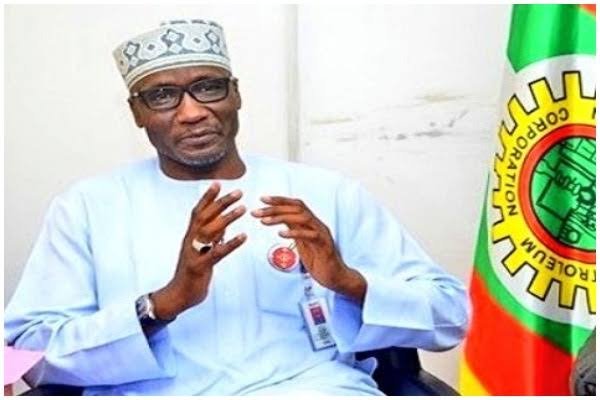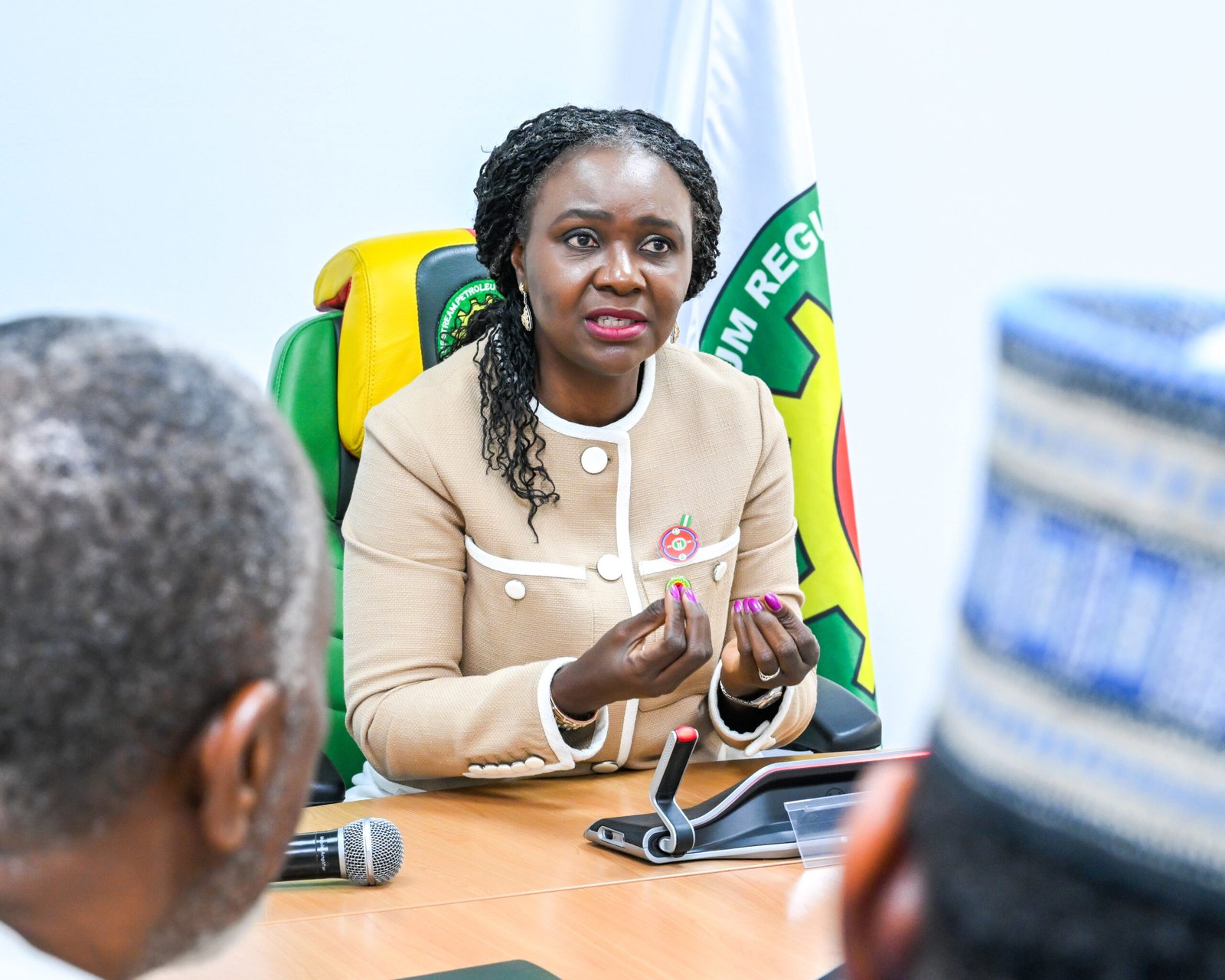Opinion
WARRI: WHAT SHOULD NIGERIANS EXPECT FROM NNPCL AND KYARI?

By Usman Okeme
There is grave danger in believing in a lie. The Holy Bible condemns anyone who believe in a lie. God is not a liar and therefore admonishes His followers to be wary of liars and their lies.
The 2010 Jenji Kohan television comedy which later turned into drama series comes aptly here. This series gained notoriety for its propensity for turning one colour to mean the other.
The old Port Harcourt refinery and the production of fuel, has become the new orange is a new black. The more you see but the less you understand. Especially with the highly orchestrated and televised guided tour of machineries and upgraded equipment recently. The cycle of stunts, repetitive falsehood and deception has become a notoriety of fashion for the NNPCL.
Not only are Nigerians treated to new ‘stories by moonlight’ daily, but the company have decided to play it rough this time. They are determined to do it blatantly, playing on the sensibilities of Nigerians, obviously believing that Nigerians are gullible people who believe anything, especially shows from Nollywood, no this time stunts from NNPCLYWOOD.
For the umpteenth time the NNPCL and their helmsman Kyari, have come up with another fabrication – a well twisted contrivance at that. The company and her leader are now infamous for lies, fakery and disillusionment – sometimes they just forget what they said the previous day. Speaking from both sides of their mouths, they have the highest propensity for total disregard to sincerity and transparency.
NNPCL is using all attics to convince Nigerians that the refinery is now working. But we are afraid, because a trip to the refinery does not show anything close to that.
The repeated failure of the refinery to produce even a single litre of fuel after gulping a whopping FOUR BILLION DOLLARS, an equivalent of about SIX TRILLION NAIRA to revamp three refineries, especially the Port Harcourt Refinery, but he gave us a blending plant. What is he giving us after all our investments into Warri refinery, after the unaccountable 4 Billion Dollars investment?
Nigerians are tired of Kyari’s numbed and uncoordinated excuses. There are clear and incontrovertible indication that the refinery is not refining but, if anything about trying their hands at blending, and the amount squandered is too much for Nigerians to turn the other eyes. Kyari and the NNPCL must give an explanation and do it now.
Experts in the sector have revealed that the prospect of the Port Harcourt Refinery running at its nameplate capacity is in doubt as it would at best reach 40 percent to 50 percent of capacity but NNPCL is telling us a different story of running at something above 70 percent.
They also believe that even the blending plant cannot work, because Nigerian National Petroleum (NNPC) Limited, has not carried out any applicable construction or commensurate overhaul of any sort in the last 30 years, and does not possess the requisite manpower and competencies for any viable operations owing to the fact that there has been manpower wastages, and as such several organizational knowledge depletion within this period.
Fact remains that Kyari himself stated that what is envisaged at the refinery is blending and not refining. That statement did not come as a sudden realization but a confession after the fact, having gulped billions of dollars. It also underscores an acceptance of the fact that the establishment was out on a voyage of deception.
Unfortunately, Kyari and the NNPCL are now synonymous to deception. Few months ago, Nigerians where treated to the fact that the refinery has been brought back to life. A week later the company was battling to save its face, and using all conceivable means, including a guided tour of machineries and upgraded equipment, with none of those on the tour confirming they saw a single litre of fuel dispensed, just to convince Nigerians that the refinery was back on production.
This indeed is a troubling grand deception and an insult on the sensibilities of the Nigeria public. Just when Nigerians think they know where the NNPCL is going, it changes its trajectory, upping the ante of deception by finding another explanation – what a shame!
This refinery is vital for energy security, job creation, economic independence, and national growth and development, but Kyari is deliberately determined to ensure that these benefits and more, elude Nigerians. Nigerians deserve the truth. They want to see a refinery that billions of dollars of the tax payer’s money has been disbursed for and certainly not the one whose fuel is only in the mouth and papers of Kyari’s media propagandist, and basically not a blending plant.
Aside the experts, who have clearly stated that the refinery lacks both the human and material capacity to function as announced, a community leader and an eye witness, who is ordinarily passionate about the take-off of the refinery, debunked the fact that the Port Harcourt refinery, and by extension, the Port Harcourt depot, is operational.
He unequivocally stated that while the community was happy because of the attempt by the NNPCL, because the refinery is the mainstay of the Alesa community’s economy, as the economic activities emanating from the operations of these depots mean a lot to them, he does not think there is cause for celebration yet because what is in the media space is different from what is on the ground. He emphasized that as a community person, the guided tour and dramatization were all mere fluke.
The operations at the old refinery are merely skeletal with some units of the refinery up and running, while the entire unit of the old refinery is not functional. It is also fact that the Old Port Harcourt refinery is built with its utilities, different from the new complex. The tank farm that is servicing the Old Port Harcourt refinery has a different loading gantry at the depot.
Common sense of logic demands that when any company produces a product regardless of the type or time, whether it is biscuit or toilet rolls. The first thing to do immediately after production is to send them to the market out to the customers at a fixed price. Unfortunately, NNPCL has not sent out its product several months after they claimed to have commenced production.
The party and televising was held at the new loading gantry that is directly connected to the new refinery. And so, how does that work? It is impossible. The simple explanation is that the feedstock storage facility for the old refinery had some stock, old stock that has been there for over three years.
And so what Kyari did was to release that stock, and then load six trucks, which was televised for Nigerians as the production from the old refinery. This is a grand foolery. It is on record that only six trucks were used to calibrate the new loading gantry and the product was not a new refined product from the old refinery. Also since its much publicized takeoff, NNPCL has only dispatched six trucks which represents the existing stock at the Port Harcourt Refinery.
Kyari also told Nigerians that the old Warri refinery is now fully automated, producing 1.4 million barrels of litres of petrol per day. This is ridiculous. How can an automated refinery, capable of producing 1.4 million barrels per day load only four trucks of product for a whole day, starting from 7 am till about 8 pm of the next day. Even in those years of manual loading system, it took less than 45 minutes.
Equally ridiculous is the claim that the refinery is operating at the capacity of 70 per cent but can only load four trucks for a whole day, one truck staying under the loading gantry for more than six to seven hours. This is deceit taken too far and a shame.
Nigerians are told that the facility refines with products derived from Naphtha. Nigerians want to know where they are getting it from. Nigerians are interested in knowing about NNPCL distillation units. This is because they want to understand the options that NNPCL is using, either getting Naphtha from somewhere, including import, which means the refinery has been turned into a blending plant, or they have fired on the distillation unit, introduced crude oil and have produced Naphtha.
Nigerians urge the NNPCL to tell them where its feedstock (crude oil) is procured from and the company supplying it. If we want to get better, we have to change our pattern.
Kyari has woefully failed to exhibit demonstrable and fundamental grasp of what he needs to do to reposition the oil sector after several years of being in the saddle. This is basically because, Mele Kolo Kyari, the Group Chief Executive Officer of the Nigeria National Petroleum Company Limited is a serial liar, an abysmal failure, and a crook who can tell you a hundred things and only one could be true.
Let us not try to know the distribution pattern or logs or even query the implication of the NNPCL accepting that Crude Distillation Unit (CDU) is still running but the operations of the depot is shut down.
Nigerians have been infiltrated, insinuated, intimidated and must re-create to survive. Mele has told us many lies.
In May 2023, after spending a whopping 11 trillion naira on rehabilitation of the refineries, nothing still has happened.
In October, 2023, Kyari promised quick-fix has failed to fix even one refinery several months after while billions of Naira has gone down the drain.
The promise made in December, 2023 for the rehabilitation of the Warri refinery by the first quarter of 2024 and the Kaduna refinery by the end of December has yet to see the light of the day.
In March, 2024, Kyari promised that the Warri refinery had received crude oil and would begin operations in April, which never happened.
On 15th July 2024, the NNPCL in a deliberate platitude, promised a revised commencement date for the Warri refinery and Kaduna refinery, with the promise to commence operations in early August and Kaduna in December that too has not been achieved.
On 7th August 2024, the Nigerian Senate alleged economic sabotage in the Nigeria’s petroleum industry and expressed concern over the failure of the government owned refineries to function despite the billions of dollars committed for its rehabilitation yearly. The list can go on and on.
The NNPCL under Kyari has failed to deliver on all its promises right from the first day of his assuming office till date. He has only instituted systemic failure and endemic collusive corruption in a cesspool of monumental opacity, and always leading consistently from the rear of the oil and gas sector in the comity of nations.
His Transparency, Accountability and Performance Excellence (TAPE). Has only remained a tape – an instrument of symbolism and propaganda, without any form of viable and measureable functionality. He has been unable to achieve any goal, priorities, performance standards and criteria even with the very huge disbursement. His policies has only led to more corruption which has led citizens into unmitigated economic hardship, extreme suffering, misery and poverty.
He is inefficient, lackluster, greedy and selfish. He has exhibited strong resistance to the system of public scrutiny, transparent processes and a system of well-defined operation, and has compelled the company not to operate within the framework of a cost structure which will guarantee value addition and sustainable profitability but instead good in churning out data and favourable reports which has no direct bearing on the practical evidence and the welfare and prosperity of the nation.
Mele Kolo Kyari, the Group Chief Executive Officer of the Nigeria National Petroleum Company Limited, is incompetent and lacks sincerity and has lost touch with morality and the natural Law of Retribution. Nigerians are daily frustrated as a result of ceaseless myriads of unfulfilled promises from him. He is a perpetual, habitual liar, turning round and round, in a circle without an exit point.
Okeme wrote this piece from Abuja.
Opinion
No More Pipeline Vandalism in The Niger Delta, But…

APPRAISING MILITARY RESOLVE AND THE PATH TO SUSTAINABLE OIL SECURITY
By Aaron Mike Odeh
On a recent media assessment visit by the Director, Defence Media Operations, Major General Michael E Onoja on the 20 January 2026, the General Officer Commanding (GOC), 6 Division of the Nigerian Army and Commander Land Component Operation DELTA SAFE, Major General Emmanuel Emeka, stated that there will be “no more pipeline vandalism in the Niger Delta” indicating a strong affirmation of military resolve and institutional confidence in the ongoing operations within Nigeria’s most economically strategic region.
Far from being a casual statement, the pronouncement reflects the operational posture, command clarity, and renewed determination of the Nigerian Armed Forces (AFN) under the leadership of General Olufemi Oluyede. It signals a clear message: the era of unchecked sabotage of national economic assets is being decisively confronted.
CONTEXTUALISING THE GOC’S DECLARATION
Statements of this magnitude from a serving GOC carry both symbolic and operational weight. They are rooted in firsthand command experience, intelligence assessments, and measurable gains on the ground. In this regard, Major General Emmanuel Emeka’s assertion should be understood as a projection of confidence derived from sustained military engagement, improved coordination with sister security agencies, and enhanced operational discipline within the 6 Division’s area of responsibility.
The Niger Delta has long posed complex security challenges due to its difficult terrain, extensive pipeline networks, and the activities of organised criminal syndicates. Against this backdrop, the GOC’s declaration underscores a belief that the Nigerian Armed Forces has reached a level of operational advantage sufficient to deter, disrupt, and dismantle pipeline vandalism networks.
OPERATIONAL GAINS AND MILITARY PROFESSIONALISM
Under Major General Emmanuel Emeka’s command, the 6 Division has intensified patrols, improved intelligence-led operations, and sustained pressure on illegal refining camps and crude oil theft routes. These efforts align with the Federal Government’s strategic objective of securing oil infrastructure as a matter of national economic security.
The GOC’s statement therefore reflects not mere optimism, but a professional assessment of the division’s growing capacity to dominate the operational environment. It also reinforces the Nigerian Armed Forces constitutional role as a stabilising force, committed to safeguarding national assets in support of economic recovery and investor confidence.
THE “BUT”: BEYOND KINETIC SUCCESS
While commending the resolve and achievements of the 6 Division, it is equally important to situate the declaration within a broader national framework. The “but” in the statement should not be interpreted as doubt or contradiction; rather, it represents an acknowledgment of the multifaceted nature of pipeline security in the Niger Delta.
Pipeline vandalism has historically been sustained not only by criminal intent, but also by socioeconomic pressures, environmental degradation, and the absence of alternative livelihoods in some host communities. Military success, while indispensable, achieves greater durability when complemented by effective civil governance, economic inclusion, and community trust-building.
COMMUNITY ENGAGEMENT AS A FORCE MULTIPLIER
One of the strengths of recent military operations in the Niger Delta has been improved civil-military relations. The success of the Armed Forces is closely tied to cooperation from local communities, traditional institutions, and credible stakeholders.
Sustainable pipeline security is most effective when host communities become partners in protection rather than passive observers. The GOC’s declaration implicitly places responsibility on all stakeholders—government agencies, oil companies, community leaders, and youths—to consolidate the gains made by the Armed Forces.
INSTITUTIONAL SYNERGY AND NATIONAL RESPONSIBILITY
The efforts of the 6 Division do not exist in isolation. They form part of a wider national security ecosystem involving regulatory agencies, intelligence services, law enforcement bodies, and policy institutions. The GOC’s confidence should therefore inspire complementary actions across these sectors.
Oil companies must uphold environmental standards and transparent community engagement. Regulatory bodies must enforce accountability. Development agencies must deliver visible dividends of peace. These non-military actions reinforce the security umbrella provided by the Nigerian Armed Forces.
LEADERSHIP AND STRATEGIC MESSAGING
Major General Emmanuel Emeka’s statement also serves as strategic communication—boosting troop morale, reassuring investors, and reinforcing public confidence in the Armed Forces of Nigeria. Such leadership messaging is essential in shaping national narratives around security, discipline, and state authority.
By articulating a firm stance against pipeline vandalism, the GOC is not only commanding troops, but shaping expectations and setting benchmarks for operational success.
CONCLUSION
The declaration that there will be “no more pipeline vandalism in the Niger Delta” should be seen as a reflection of strengthened military capacity, improved leadership focus, and renewed institutional confidence under Major General Emmanuel Emeka, GOC 6 Division of the Armed Forces.
The Nigerian Armed Forces has demonstrated readiness to secure critical national assets. The task ahead is to consolidate these gains through sustained operations, inter-agency synergy, and socio-economic interventions that address underlying vulnerabilities.
In this context, the GOC’s statement stands as both an assurance and a call to collective national responsibility—one that deserves commendation, support, and strategic follow-through.
Aaron Mike Odeh, a Public Affairs Analyst Media Consultant and Community Development Advocator wrote from Post Army Housing Estate Kurudu Abuja
Opinion
Appraising NUPRC’s New Tempo

By Grace Ameh
As a woman who has spent years admiring the quiet strength of sisters carving paths in Nigeria’s demanding energy sector, my heart swelled with genuine joy the moment Chief Mrs. Oritsemeyiwa Eyesan’s appointment as Commission Chief Executive of the Nigerian Upstream Petroleum Regulatory Commission was announced.
Here stands a remarkable daughter of the Niger Delta, graceful yet fiercely determined, becoming the first woman to lead our nation’s upstream regulator. Her rise feels deeply personal, like watching a beloved sister finally claim the spotlight she has long deserved.
The NUPRC, as a young agency born from the transformative Petroleum Industry Act of 2021, has shouldered enormous responsibilities in a complex and evolving landscape—navigating fluctuating production levels amid global energy shifts, addressing delays in data dissemination that can affect investor planning, tackling the persistent menace of crude oil theft that impacts national revenue, and working to enhance transparency in licensing rounds and asset management for greater stakeholder confidence.
This institution emerged with bold ambitions to modernise regulation, attract investment, and optimise Nigeria’s hydrocarbon resources, yet it has operated in an environment marked by inherited challenges and the need for continuous adaptation to deliver on its mandate.
Then, in December 2025, President Bola Tinubu nominated Chief Mrs Eyesan as the first woman to lead NUPRC, a move swiftly confirmed by the Senate.
My spirit lifted immediately. Chief Eyesan’s journey inspires every woman dreaming big in this field. She holds a Bachelor of Education in Economics from the prestigious University of Benin, graduating in 1986 with a solid foundation in economic theory, market analysis, and project evaluation—skills that would prove invaluable in the complex world of energy finance and strategy.
Her academic grounding equipped her to navigate large-scale investments and regulatory frameworks with precision. Early in her career, she honed her financial acumen in banking, serving as Branch Manager at People’s Bank of Nigeria and later as Treasury Officer at Gulf Bank, before joining NNPC in 1992.
Over nearly 33 years, she rose steadily through roles in planning, procurement, corporate strategy, and sustainability, culminating as Executive Vice President, Upstream, until her retirement in November 2024. In that position, she oversaw strategic management of Nigeria’s upstream operations, led sustainability initiatives, strengthened financial discipline, and guided critical reforms aligned with the PIA.
Since assuming office, Chief Eyesan has brought a refreshing wave of purpose and collaboration to NUPRC. Her patriotic commitment shines brightly as she aligns the Commission’s work with President Tinubu’s Renewed Hope Agenda, emphasising increased crude oil production to enhance energy security and revenue, accelerated gas monetisation to advance the Decade of Gas vision, and robust transparency measures to rebuild investor trust.
I admire her focus on digitisation; she is thoughtfully integrating digital tools to improve operational efficiency, accountability, and ease of business, cutting through layers of bureaucracy that once slowed progress. Her leadership style feels deeply relatable—inclusive and engaging. With an open-door policy and regular town halls, she encourages staff input while forging stronger ties with stakeholders, labour unions, and professional bodies.
She champions environmentally sustainable practices, ensuring growth does not come at the cost of our land and waters. Her strategic vision unfolds organically: boosting crude reserves and output for economic stability, scaling gas utilisation for power generation and exports, fortifying regulations to attract long-term investments, nurturing technical expertise through partnerships and capacity building, and embedding digitisation hand-in-hand with transparency to foster dynamic, confidence-inspiring growth.
In these early weeks of January 2026, tangible steps are emerging. She has advanced the 2025 licensing round, scheduling a key pre-bid conference for January 14 in Lagos to draw fresh capital into exploration and development. Partnerships, such as deepened synergy with the Nigerian Midstream and Downstream Petroleum Regulatory Authority, highlight her collaborative spirit.
What touches me profoundly is how Chief Eyesan views challenges as opportunities. She inherited an agency needing revitalisation but approaches it with grace, strategy, and unyielding diligence—that workaholic patriotism we so admire in trailblazing women. Her experience positions her uniquely to resolve legacy issues, unlock stranded assets, and position NUPRC as Africa’s premier regulator.
Reflecting on this new era, sisterly pride overwhelms me. Chief Mrs. Oritsemeyiwa Eyesan is truly an Amazon—resilient, visionary, and devoted to Nigeria’s progress. In her capable hands, the upstream sector is not just recovering; it is poised to soar, delivering sustainable wealth for generations.
Dear sister, you embody the hope we renew daily. The light of your leadership illuminates our path forward, proving once again that when a woman of substance rises, the nation rises with her.
*Ameh an Oil and gas expert writes from Kaduna.
Opinion
FIFA World Cup: Counting the costs of Super Eagles missed opportunities

By Victor Okoye
As the football world prepares for the expanded 48-team 2026 FIFA World Cup, Nigeria is facing the prospect of missing the global showpiece for the eighth time since its inception in 1930, a development that has drawn concern from football stakeholders and sports administrators in the country.
The Super Eagles, who made their World Cup debut at USA 1994, have qualified for the finals six times but failed to reach the tournament on seven previous occasions.
Should Nigeria fail to qualify for the 2026 edition, it would mark the eight miss and a second consecutive absence, further highlighting the rising cost of non-participation in an era of unprecedented financial rewards.
Historically, missing the World Cup was largely a sporting setback. Financial incentives were modest in earlier tournaments.
In USA 1994, FIFA’s total prize money stood at about 62 million dollars, with champions Brazil earning roughly four million dollars.
France 1998 offered about 131 million dollars in total prize money, while winners received around six million dollars.
The figures rose steadily to 300 million dollars at Brazil 2014 and 440 million dollars at Russia 2018 and Qatar 2022.
However, FIFA’s recent review has significantly raised the stakes.
The FIFA Council has approved a record 727 million dollars financial package for the 2026 World Cup, to be co-hosted by the United States, Canada and Mexico.
At an estimated exchange rate of 1,500 naira to the dollar, the total sum translates to about 1.09 trillion naira.
Of this amount, 655 million dollars (approximately 982.5 billion naira) will be shared as prize money among the 48 participating teams.
Champions will earn 50 million dollars, runners-up 33 million dollars, third place 29 million dollars and fourth place 27 million dollars.
Teams finishing between fifth and eighth will receive 19 million dollars, ninth to 16th are to receive 15 million dollars, 17th to 32nd will pocket 11 million dollars, while teams ranked 33rd to 48th will earn nine million dollars.
Each qualified nation will also receive 1.5 million dollars as preparation funds.
This guarantees every participating team a minimum of 10.5 million dollars — about 15.75 billion naira — before the tournament begins.
Nigeria’s 2026 qualification campaign ended in disappointment after the Super Eagles finished second behind South Africa in their group and lost the African playoff final to the Democratic Republic of Congo (DR Congo) on penalties.
To date, no public official report has broken down the total operational costs or expenditure to prosecute the 2026 World Cup qualifying campaign (travel, allowances, camps, logistics) but there are concerns and scrutiny over Nigeria Football Federation (NFF) finances.
The scrutiny includes how funds received from FIFA and CAF have been used over the years following the House of Representatives move to probe more than 25 million dollars in FIFA/CAF grants given to the NFF between 2015 and 2025, citing accountability questions.
However, the NFF has petitioned FIFA over alleged player-eligibility breaches by DR Congo, a move that has reopened debate within the football community.
Reacting to the situation, former Super Eagles captain and 1994 AFCON winner, Mutiu Adepoju, described the possibility of another World Cup absence as “a huge setback”.
“Missing one World Cup is painful, but missing two in a row is unacceptable for a country like Nigeria. Beyond pride, the financial loss is enormous and affects football development at all levels,” Adepoju said.
Former NFF Technical Director, Austin Eguavoen, said qualification had become more critical than ever due to the new prize structure.
“In the past, the World Cup was more about exposure. Now, the money involved can change the entire football ecosystem. Missing out means missing an opportunity to invest in grassroots and infrastructure,” Eguavoen said.
Chairman of the Nigeria Premier Football League (NPFL), Gbenga Elegbeleye, said the impact would also be felt in the domestic league.
“When the national team is at the World Cup, it attracts attention to our league and players. Absence reduces visibility, sponsorship interest and confidence in the system,” Elegbeleye said.
Similarly, former Minister of Sports, Solomon Dalung, said Nigeria must treat World Cup qualification as a national project.
“The Super Eagles missing the World Cup repeatedly shows deeper administrative and structural issues. The financial consequences alone should force stakeholders to rethink planning and accountability,” Dalung said.
On the legal challenge before FIFA, NFF Secretary-General, Dr Mohammed Sanusi, confirmed that the matter was under review.
“We have submitted our petition and we are waiting for FIFA’s decision. The rules are clear on nationality and eligibility, and we believe the issues raised deserve careful consideration,” Sanusi said.
If FIFA rules in Nigeria’s favour, the Super Eagles could be reinstated into the intercontinental playoffs, restoring a pathway to qualification and access to guaranteed earnings of at least 15.75 billion naira.
Failure would confirm Nigeria’s eighth World Cup absence, with consequences ranging from lost revenue and reduced global visibility to diminished influence in international football.
With the 2026 World Cup set to deliver the highest financial rewards in FIFA history, stakeholders agree that Nigeria can no longer afford repeated absences from football’s biggest stage.
-

 Cover5 months ago
Cover5 months agoNRC to reposition train services nationwide.. Kayode Opeifa
-

 Fashion9 years ago
Fashion9 years agoThese ’90s fashion trends are making a comeback in 2017
-

 Entertainment9 years ago
Entertainment9 years agoThe final 6 ‘Game of Thrones’ episodes might feel like a full season
-

 Opinion1 year ago
Opinion1 year agoBureaucratic Soldier, Kana Ibrahim heads Ministry of Aviation and Aerospace After Transformative Tenure at Defence
-

 Opinion1 year ago
Opinion1 year agoHon. Daniel Amos Shatters Records, Surpasses Predecessor’s Achievements in Just Two Years
-

 Opinion2 months ago
Opinion2 months agoBarrister Somayina Chigbue, Esq: A rising legal leader shaping institutioal excellence in Nigeria
-

 News6 months ago
News6 months agoNigerian Nafisa defeats 69 Countries at UK Global Final English Competition
-

 Special Report1 year ago
Special Report1 year agoGolden Jubilee: Celebrating Tein Jack-Rich’s Life of Purpose and Impact




